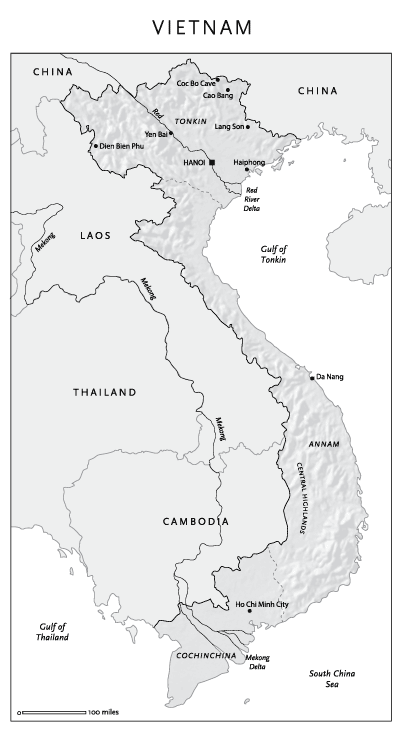Can you tell us something about your background?
I was born in Vietnam. My mother was Vietnamese, but her father was already a French citizen. I found his ‘naturalization’ certificate, as they called it in those days, number 18, dated 1906—which is to say, he was the eighteenth Vietnamese to acquire French citizenship, although he never went to France. He worked for a French company in Vietnam, keeping the books. In spite of what many people think, to acquire French nationality it was not necessary to be a collaborator. If one could speak and write the language correctly, live in the French style, and educate one’s children in French—those were the conditions. My grandfather satisfied these requirements. He drank Bordeaux, but would eat Vietnamese food. You must remember that Vietnam was divided into three parts: Annam, Tonkin and Cochinchina. My mother’s family were from Cochinchina—the first part of Vietnam to be conquered by the French. It was a very open society, the most commercial region. It was already a frontier zone for the Vietnamese: they had only arrived there in the seventeenth and eighteenth centuries. Before them, there were the Cambodians; also many Chinese living in the Mekong Delta, who had been driven out by the Manchu dynasty.
The Vietnamese bourgeoisie was very open to influences from French or Chinese culture. My mother learned to read in French as well as in her mother tongue. She worked from a young age, again for a French import–export firm, the Union Commerciale Indochinoise et Africaine. She was in the cosmetics department, and my father worked in the food department; that is where they met. Her parents had promised her to a rich landowner, but she did not want an arranged marriage. She told them she had met this Frenchman, the son of a merchant from Normandy. There was a great dispute, because her parents did not know his family—they said: ‘We cannot trust him; perhaps he is a crook, an escaped convict!’ But my mother was determined, and they married in 1929. I was born two years later, their only child.
How had the French presence in Vietnam been established?
The conquest took place in stages between 1858 and 1897. Various interest groups pressed for expansion into Indochina. The earliest promptings came from the missionary Church. For the Catholic Church, colonialism was vital, since it provided a response to the grave difficulties that accompanied its work in Europe, a path to a renewed universality, compensating for the slow decline of Christian culture in France that had been going on since before the Revolution. Missionaries played an irreplaceable role as informants and advisors. Thanks to their daily contact with the native populations, they were the only Europeans who could provide first-hand information about these societies. French colonization in the Far East was also tied to the rise of the Navy, without which the global expansion of French commerce and the French state would have been unthinkable. The renewal of French maritime power would require a global network of bases, and the Indochinese ports were remarkably well situated between the Indian Ocean and the Pacific.
We should not view the creation of the protectorate as the work of finance capital in the Hobsonian or Leninist sense of the term, of large monopolist groups looking to divide the peninsula between themselves. In France, these groups hardly existed in the 1880s, when the colonization of Indochina reached its climax—although they would be very active in Russia and Turkey after 1900. Nonetheless, economic factors were central. French capitalism suffered a long depression in the late nineteenth century, which reached its low point in the 1880s. Between 1875 and 1905, the country’s gnp increased by only 10 per cent, compared to 113 per cent for Germany and 60 per cent for the United Kingdom. The export of capital became more critical than ever as a way of raising and regulating the rate of profit. Colonies were viewed as essential sites for the investment of excess capital.
Compounding this crisis was the weakening of French foreign trade. French leaders saw the creation of captive consumer markets as an effective response; over time, the whole of French industry and agriculture formed strong ties with the colonies. There was also a political aspect: imperialism was seen as the indispensable stabilizer of a nation torn apart by five revolutions between 1830 and 1870. ‘A nation that does not colonize’, Ernest Renan had warned, ‘is bound irrevocably to socialism, to the war between rich and poor.’ Jules Ferry defined social peace in the age of industry as ‘a question of outlets’.
